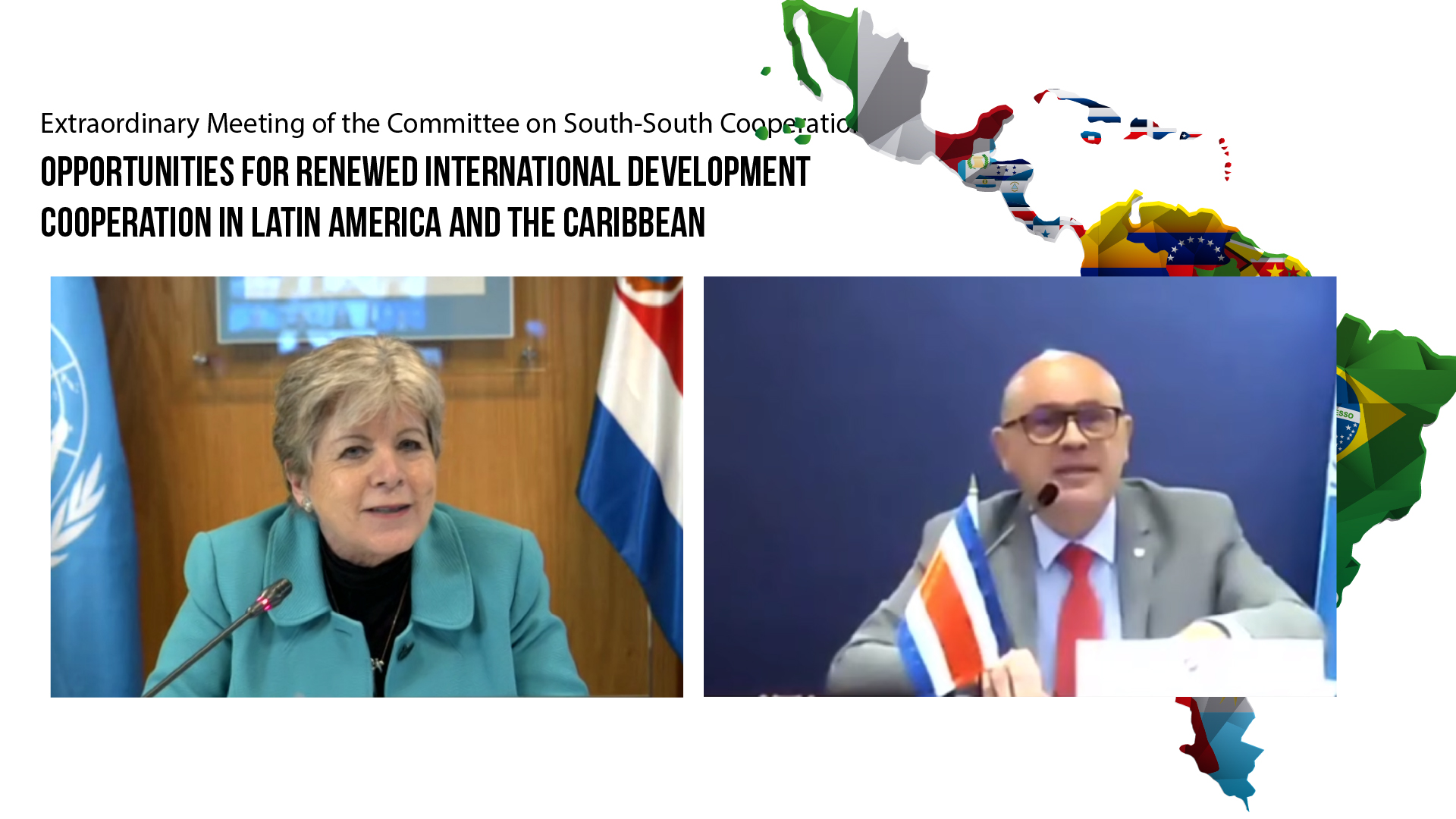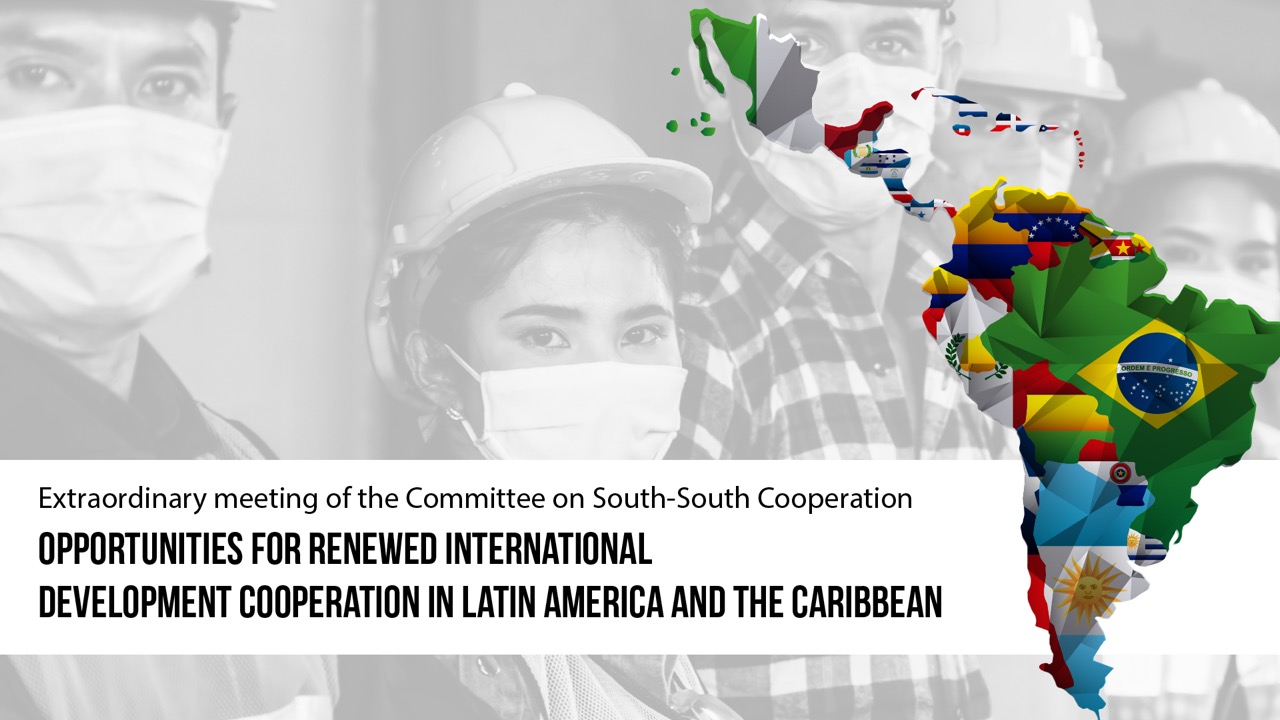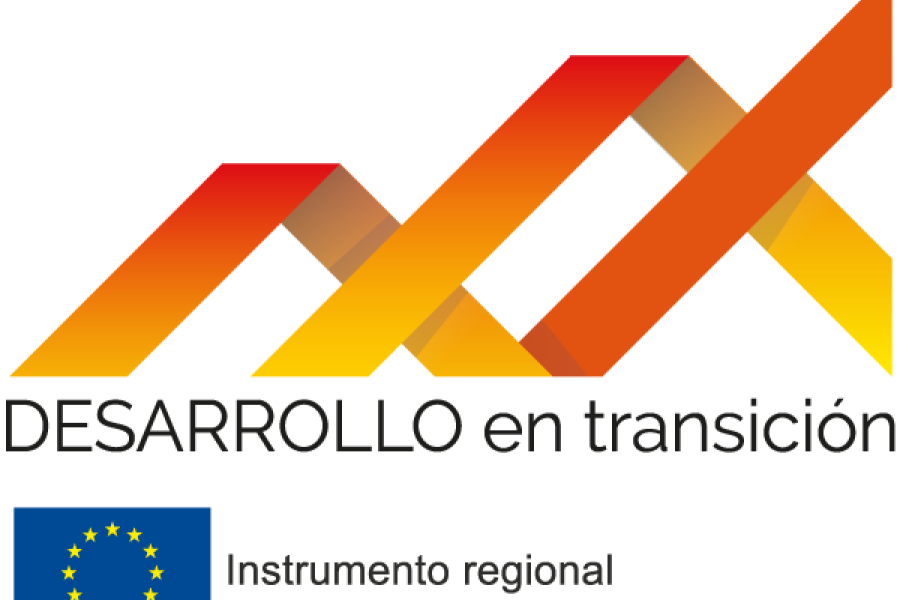Latin America and the Caribbean Needs to Have a Common Position to Face the Current Crisis and Promote Renewed International Cooperation
High-level authorities from the region are participating in the Extraordinary Meeting of the Committee on South-South Cooperation of ECLAC, which was inaugurated today.

Latin America and the Caribbean needs a common position to face the COVID-19 crisis, which has deepened the region’s structural gaps, and to move towards renewed international cooperation that would take middle-income countries’ needs into account, representatives indicated during the inauguration of the Extraordinary Meeting of the Committee on South-South Cooperation: opportunities for renewed international development cooperation in Latin America and the Caribbean, which is being held virtually.
The two-day event featured welcome remarks by Alicia Bárcena, Executive Secretary of the Economic Commission for Latin America and the Caribbean (ECLAC), and Rodolfo Solano Quirós, Minister of Foreign Affairs and Worship of Costa Rica – the country that is presiding over the Committee on South-South Cooperation of ECLAC.
”This meeting is taking place at a tragic time for us,” Alicia Bárcena said, in reference to the earthquake that struck Haiti less than a week ago. The senior official thanked the immediate demonstrations of solidarity made by numerous countries in the region and indicated that ECLAC has put all its capacities at the disposal of Haiti’s authorities and its people. “Haiti needs us, all of us,” she stressed, especially at this time of severe health, economic, social and environmental crisis.
Bárcena recalled that Latin America and the Caribbean represents 8.4% of the global population but accounts for 21% of COVID-19 infections and 32.5% of the deaths caused by this disease. It has also been one of the hardest-hit regions in socioeconomic terms, with a 6.8% drop in GDP in 2020. Although growth is expected in 2021 (5.2%) and 2022 (2.9%), it will not be enough to recuperate the level of GDP from 2019 in the majority of countries, or the level of employment, especially that of women, she warned.
“Latin America and the Caribbean needs to have a common position to tackle global asymmetries,” which include those related to access to vaccines, the concentration of wealth, the fight against climate change, and financing for development, she emphasized. Agreements are needed at an international, regional and national level to address issues such as universal health care, climate security and financial stability, she added.
“International development cooperation must evolve towards a multidimensional concept to address the challenges faced by middle-income countries especially,” Bárcena said. “The Committee on South-South Cooperation of ECLAC can take important proposals before multiple public and private actors as well as civil society.”
Foreign Minister Rodolfo Solano Quirós echoed the words of solidarity with Haiti and urged the international community to redefine the concept of cooperation and move towards a new measurement of development that would integrate all the factors that affect this process – not just the economic ones – and take into account countries’ distinct vulnerabilities.
“From ECLAC’s Presidency, Costa Rica has promoted strengthening our work on development cooperation. It is indispensable that we act in solidarity and that our region speak with a single voice before a world that is undergoing a profound reconfiguration,” the Minister of Foreign Affairs and Worship of Costa Rica said.
“This is an optimal time for us to reinvent ourselves, to be the protagonists of change,” the Minister said, in reference to the work of the Committee on South-South Cooperation of ECLAC. He anticipated that “we have convened you so that the mechanism can evolve and this Committee can be transformed into a Conference,” in pursuit of a green, inclusive and resilient recovery in the region with a human face, in line with the 2030 Agenda for Sustainable Development.
Later the same day, Alicia Bárcena released the main conclusions of the draft document Development in transition: Concept and measurement proposal for renewed cooperation in Latin America and the Caribbean, prepared at the request of the Costa Rican government.
The study presents an analytical framework for rethinking the measurement of development in middle-income countries, beyond per capita GDP, and the criteria for allocating international cooperation resources. This framework is based on three approaches: 1) that of structural gaps, which ECLAC proposes; 2) the middle-income trap; and 3) development in transition, as a concept that seeks to change the narrative and that has been debated by ECLAC, the European Commission and the Development Centre of the Organisation for Economic Co-operation and Development (OECD).
During her presentation, Bárcena called for suspending the “graduation” of middle-income countries from Official Development Assistance (ODA) during the pandemic, since these resources continue to be important for many of them and this process has numerous direct and indirect effects, of both a financial and non-financial nature.
Latin America and the Caribbean is the most indebted region in the developing world, ECLAC’s Executive Secretary warned. Between 2019 and 2020, general government debt in the region rose from 58.8% of GDP to 68.6% of GDP, or nearly 10 percentage points, she stressed.
New forms of international cooperation, she noted, have to address cross-cutting issues, such as the care economy, the circular economy, and access to knowledge and technology; take into account industrial policies to create economies of scale; and above all, expand the toolbox, including debt swaps and climate funds.
Finally, Bárcena emphasized that “cooperation must include all countries, beyond their income level; basing itself on countries’ development problems and opportunities and recognizing their national strategies; being flexible in responding to uncertainty; recognizing the commitment and participation of countries in transition to development; guaranteeing access to concessional finance for all middle-income countries, especially the smallest economies; recognizing the regional perspective for strengthening cooperation and common positions before the multilateral world; and articulating efforts around the Sustainable Development Goals. Without a doubt, this is about strengthening South-South cooperation.”
Related content

High-level Authorities from the Region Will Examine the Opportunities and Challenges of International Development Cooperation in the Context of the Post-Pandemic Recovery
On August 19-20, an extraordinary meeting of the Committee on South-South Cooperation, which is a subsidiary body of ECLAC, will take place virtually.

Extraordinary meeting of the Committee on South-South Cooperation: opportunities for renewed international development cooperation in Latin America and the Caribbean
Extraordinary meeting of the Committee on South-South Cooperation: opportunities for renewed international development cooperation in Latin America and the Caribbean will be held virtually on August…
Related link(s)
Country(ies)
- Latin America and the Caribbean
Related project(s)
Contact
Public Information Unit
- prensa@cepal.org
- (56 2) 2210 2040

